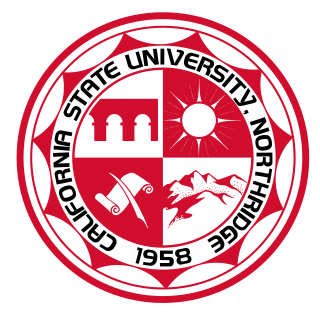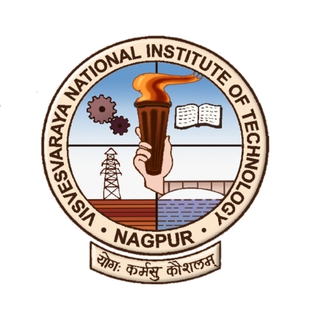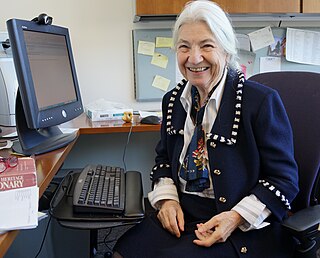
California State University, Northridge is a public university in the Northridge neighborhood of Los Angeles, California. With a total enrollment of 38,551 students, it has the second largest undergraduate population as well as the third largest total student body in the California State University system, making it one of the largest comprehensive universities in the United States in terms of enrollment size. The size of CSUN also has a major impact on the California economy, with an estimated $1.9 billion in economic output generated by CSUN on a yearly basis. As of Fall 2021, the university had 2,187 faculty, of which 794 were tenured or on the tenure track.
The National Institutes of Technology (NITs) are the central government-owned-public technical institutes under the ownership of Ministry of Education, Government of India. They are governed by the National Institutes of Technology, Science Education and Research Act, 2007, which declared them as institutions of national importance and lays down their powers, duties, and framework for governance. The act lists thirty-one NITs. Each NIT is autonomous, linked to the others through a common council known as the Council of NITSER, which oversees their administration and all NITs are funded by the Government of India.

University of Visvesvaraya College of Engineering (UVCE) was established in 1917, under the name Government Engineering College, by Bharat Ratna Sir M. Visvesvaraya. It is the fifth engineering college to be established in the country and first in Karnataka. UVCE is one of the few technical institutions in the country that is vested with the status of a university and autonomy on the lines of IITs. It is one of the oldest technical institutions in the country, imparting technical education leading to B.Tech., B. Arch., M.Tech., M. Arch. and PhD degrees in the various disciplines of Engineering and Architecture. The college is approved by the AICTE and the Government of Karnataka. UVCE has secured an NAAC accreditation score of 3.17. The college used to receive financial aid under the TEQIP program from the World Bank.

Visvesvaraya National Institute of Technology Nagpur (VNIT) is a public technical university located in the central India city of Nagpur, Maharashtra. Established in 1960, the institute is among 31 National Institutes of Technology (NITs) in the country. In 2007, the institute was conferred with the status of Institute of National Importance by the National Institutes of Technology, Science Education and Research Act, 2007 of the Parliament of India with all other NITs. Formerly known as Visvesvaraya Regional College of Engineering (VRCE), the institute is named in the honor of an eminent engineer, planner and statesman Sir M. Visvesvaraya. The Institute awards Bachelor's, Master's and Doctoral degrees in engineering, technology, architecture and science for which the entry is through the JEE (Main), GATE, JAM, CSIR-UGC NET, etc.

Mahatma Gandhi Institute of Technology (MGIT) is a technological institution (Autonomous) located in Gandipet, Hyderabad, Telangana, India. It was started in 1997 by the Chaitanya Bharathi Educational Society (CBES), Hyderabad, registered under the Societies Registration Act. The annual intake is 900 students at the undergraduate level and 108 students at the postgraduate level. The institute is affiliated with Jawaharlal Nehru Technological University, Hyderabad (JNTUH), The institute has Autonomous Status till 2021-2031 A.Y. granted by UGC and offers a four-year Bachelor of Technology, in eleven disciplines and two-year Master of Technology, in six disciplines prescribed by JNTU. The college is accredited by the National Board of Accreditation and is ISO 9001:2000 certified
San Diego State University College of Engineering provides San Diego State University students with undergraduate and graduate engineering education. The College of Engineering offers eight degree programs. The Aerospace Engineering, Civil Engineering, Computer Engineering, Electrical Engineering, Environmental Engineering, Mechanical Engineering, and Construction Engineering programs are accredited by the Engineering Accreditation Commission of ABET.

The College of Engineering (CoE) is one of the three undergraduate colleges at the University of California, Santa Barbara.

Ruzena Bajcsy is an American engineer and computer scientist who specializes in robotics. She is professor of electrical engineering and computer science at the University of California, Berkeley, where she is also director emerita of CITRIS.

The Henry Samueli School of Engineering (HSSoE) is the academic unit of the University of California, Irvine that oversees academic research and teaching in disciplines of the field of engineering. Established when the campus opened in 1965, the school consists of five departments, each of which is involved in academic research in its specific field, as well as several interdisciplinary fields. The school confers Bachelor of Science, Master of Science, and Doctor of Philosophy degrees.

The Brown University School of Engineering is the engineering school of Brown University, a private Ivy League research university located in Providence, Rhode Island. Brown's engineering program is the third oldest civilian engineering program in the United States and the oldest undergraduate program in the Ivy League. The School of Engineering is noted for its historically prominent contributions to continuum and applied mechanics, originally led by European émigré researchers in the 20th century. Brown's Division of Engineering was elevated in 2010 to its current status as a school.

Moshe Kam is an American engineering educator presently serving as the dean of the Newark College of Engineering at the New Jersey Institute of Technology. Until August 2014 he served as the Robert G. Quinn Professor and department head of electrical and computer engineering at Drexel University. In 2011, he served concurrently as the 49th president and CEO of IEEE. Earlier he was IEEE's vice president for educational activities (2005–2007) and IEEE's representative director to the accreditation body ABET. Kam is known for his studies of decision fusion and distributed detection, which focus on computationally feasible fusion rules for multi-sensor systems.
Bruce Eisenstein is an engineering educator serving as the Arthur J. Rowland Professor of Electrical and Computer Engineering. He was formerly Interim Dean and Vice Dean of the College of Engineering at Drexel University. He has published nearly 50 papers in the areas of digital signal processing, pattern recognition, deconvolution, along with biomedical engineering. He also served as president of the IEEE in 2000.

National Institute of Technology Puducherry is an autonomous public technical and research university located in the city of Karaikal in Union Territory of Puducherry and is a coastal enclave in the basin of river Kaveri within the Nagapattinam District of Tamil Nadu. Founded and Established in 2010, it is one among the 31 National institutes of Technology of India and is declared as an Institute of National Importance by the Government of India under National Institutes of Technology, Science Education and Research Act, 2007.
Ramesh R. Rao is currently the director of the California Institute for Telecommunications and Information Technology, a division of the University of California, San Diego. He was appointed as the first holder of the Qualcomm Endowed Chair in Telecommunications and Information Technologies in 2004 in the department of Electrical and Computer Engineering of the Jacobs School of Engineering at University of California, San Diego where he has been a faculty member since 1984.
Nagarajan Ranganathan was a Distinguished University Professor of Computer Science and Engineering at the University of South Florida, Tampa, United States. He was elected as a Fellow of IEEE in 2002 for his contributions to algorithms and architectures for VLSI systems. He was elected Fellow of AAAS in 2012. He served as the Editor-in-Chief of IEEE Transactions on VLSI Systems.
Madhavan Swaminathan is the John Pippin Chair in Electromagnetics in the School of Electrical and Computer Engineering and Director of the Center for Co-Design of Chip, Package, System, Georgia Institute of Technology.

National Institute of Technology Tiruchirappalli is a public technical and research university near the city of Tiruchirappalli in Tamil Nadu, India. It was founded as Regional Engineering College Tiruchirappalli in 1964 by the Governments of India and Tamil Nadu under the affiliation of the University of Madras. The college was granted Deemed University status in 2003 with the approval of the University Grants Commission (UGC), All India Council for Technical Education (AICTE) and Government of India and renamed as National Institute of Technology Tiruchirappalli. The institute is recognized as an Institute of National Importance by the Government of India under the National Institutes of Technology, Science Education and Research (NITSER) Act, 2007 and is one of the members of the National Institutes of Technology (NITs) system, a group of premier Indian technical institutes governed by the Council of NITSER.











